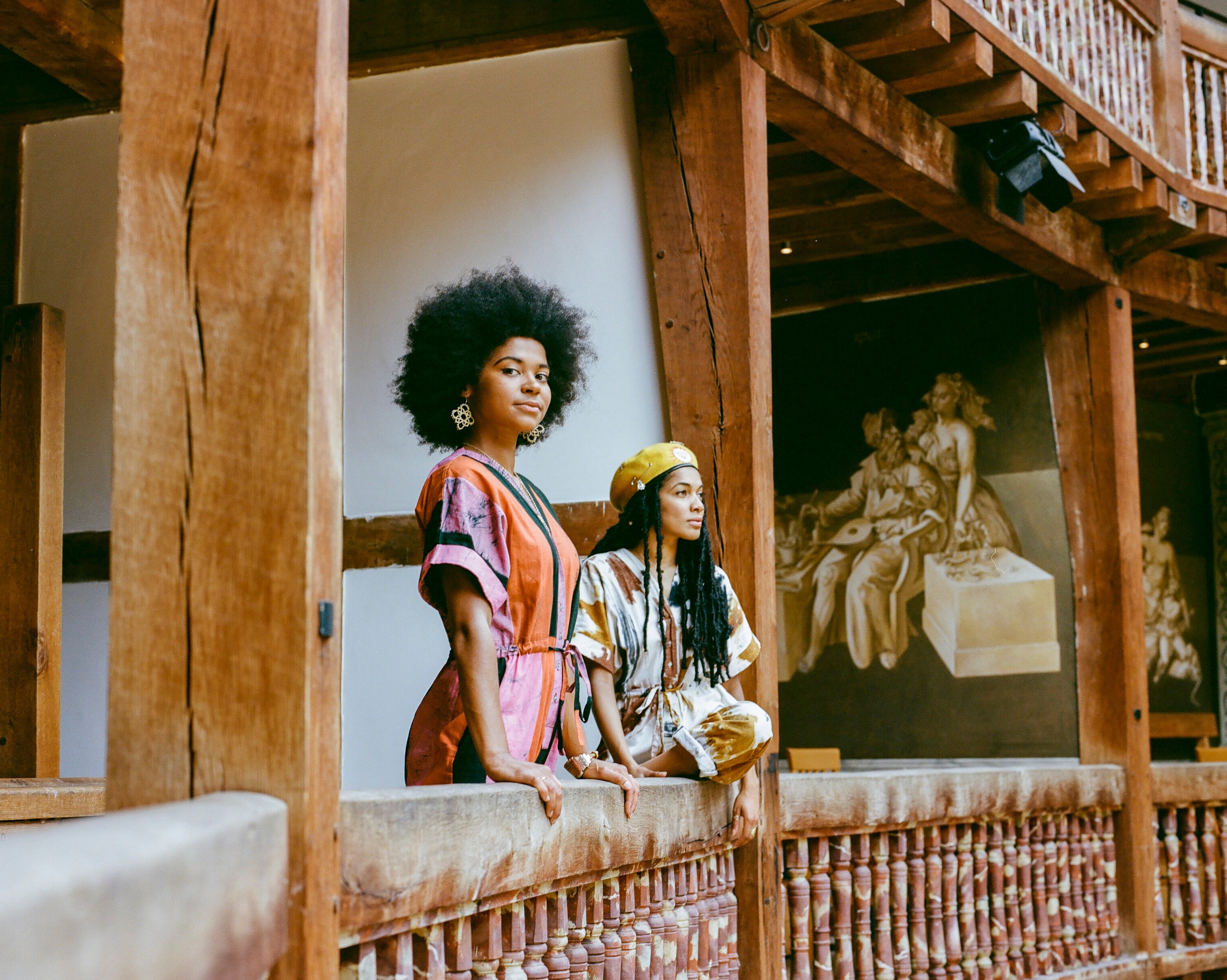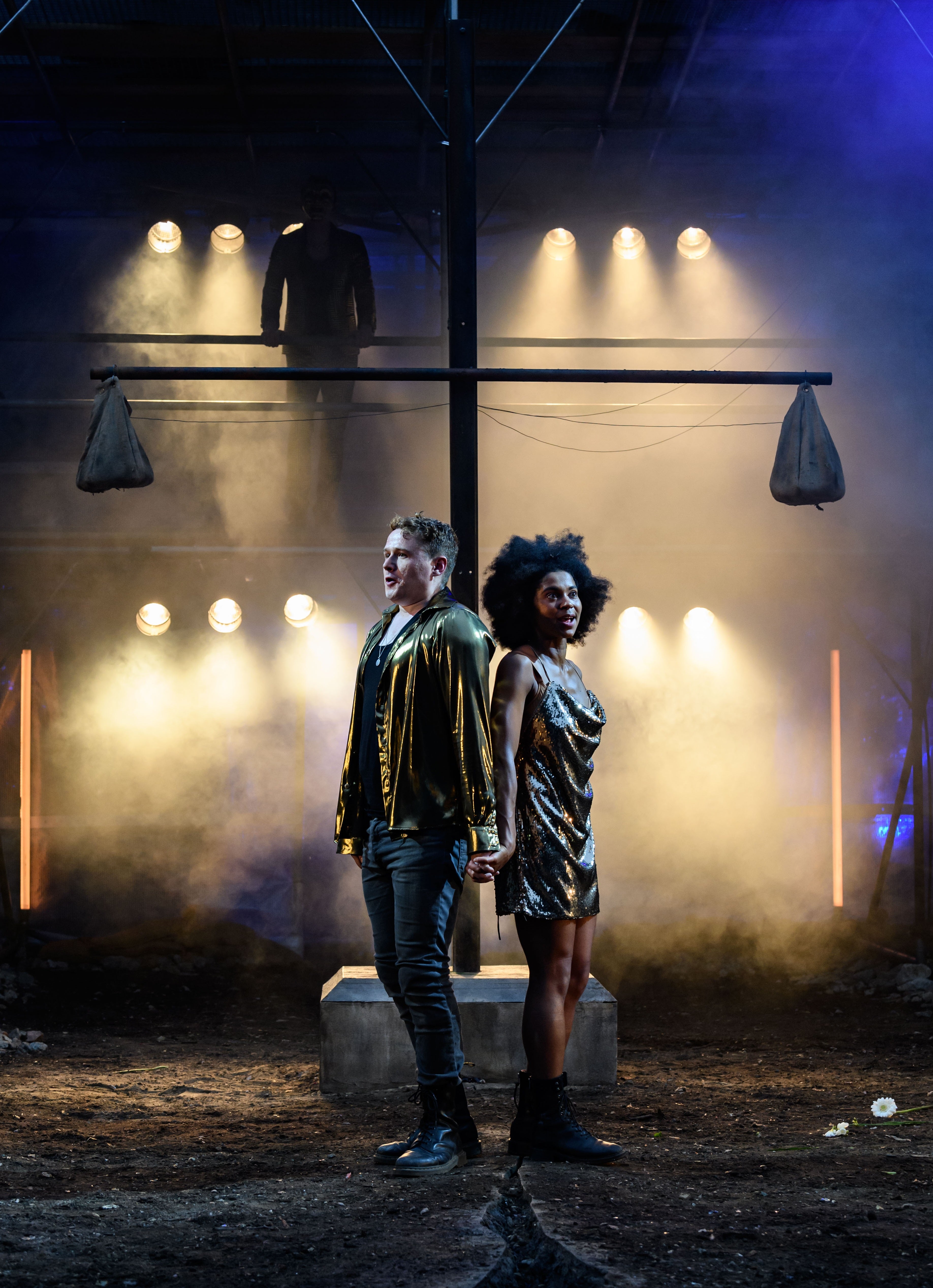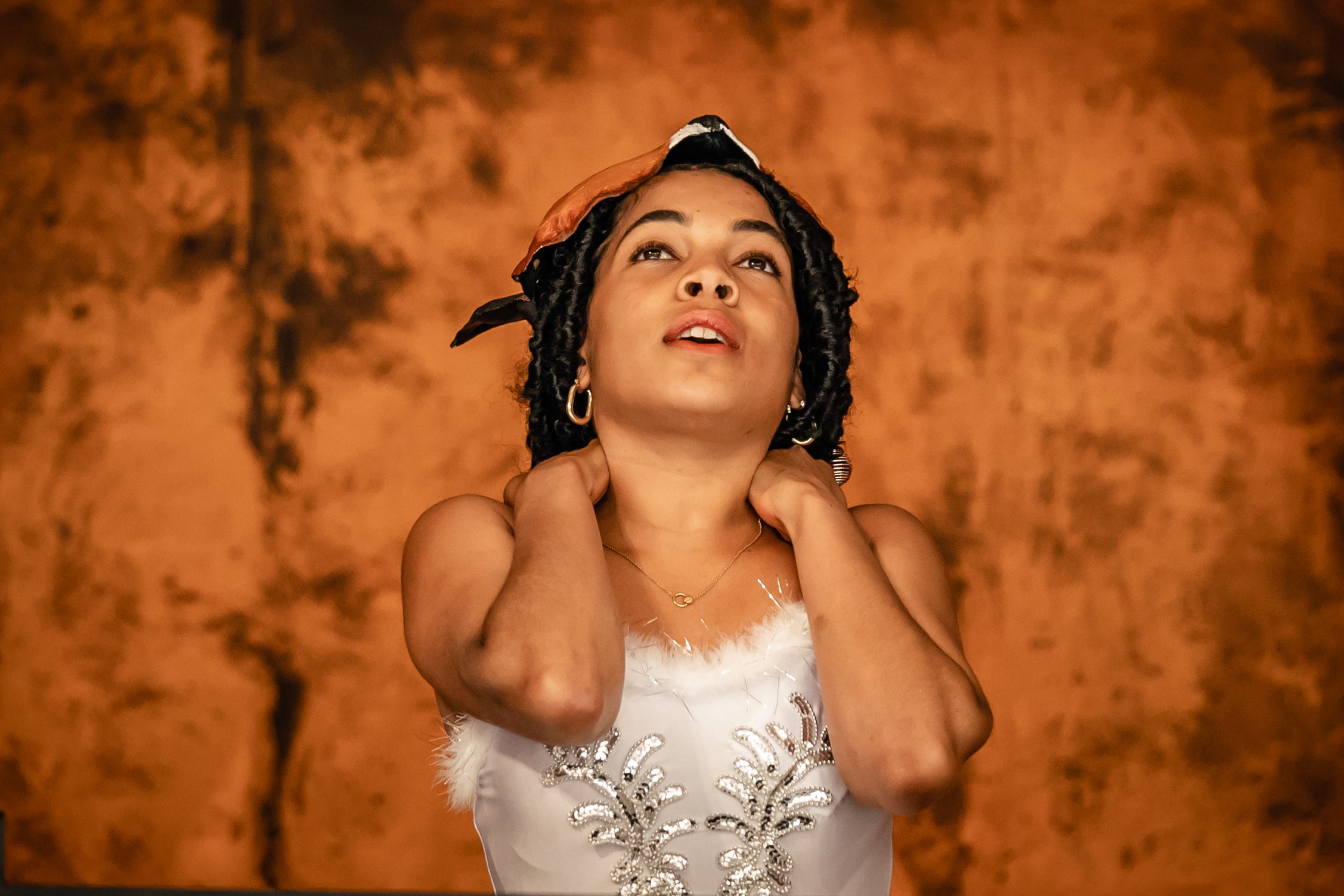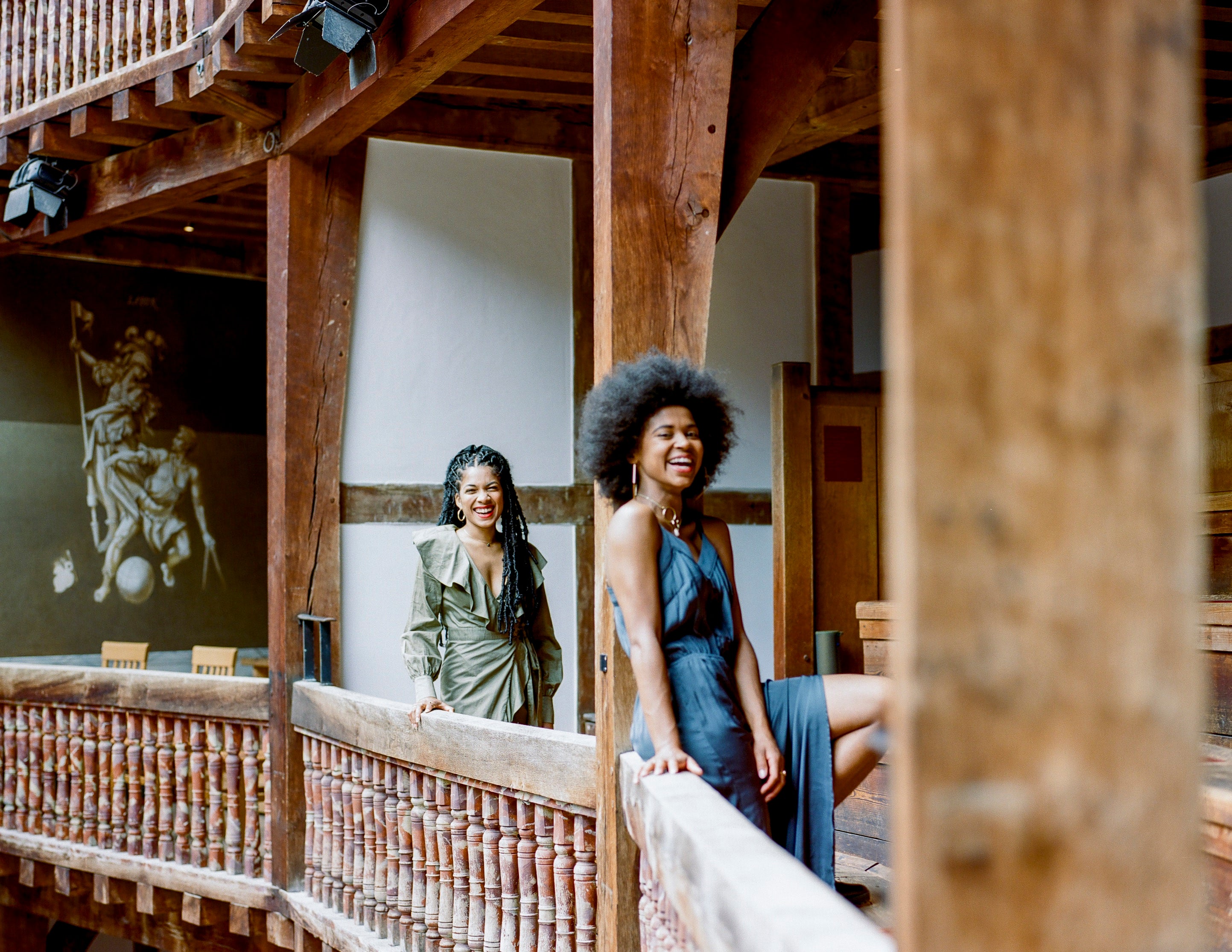‘Juliet is every girl who’s desperate for love and finds it in the wrong place’
Rebekah Murrell and Isabel Adomakoh Young are bringing new meaning to Shakespeare’s tragic heroine in productions at the Globe and Regent’s Park. They tell Isobel Lewis why audiences don’t want to see casts that all look the same, how the classics are still relevant, and why new writing mustn’t be sidelined


Can I not lie to you?” says Rebekah Murrell. The actor-director is discussing her performance in the Globe Theatre’s new production of Romeo and Juliet, but she wants to get something off her chest. “Even when I got this job I was like, I’m really not sure about this. I’m not sure if I can do this, why I would do this, or why we all still do this.” Isabel Adomakoh Young, her friend and fellow actor who is also currently starring as Juliet (this time at the Regent’s Park Open Air Theatre), nods in agreement.
“I guess I couldn’t quite understand why we would tell these stories of old,” Murrell continues. “I felt a bit like, if you want to tell a story about toxic masculinity, why don’t you get a brilliant new playwright to write one rather than doing Othello – which is dubious and racist – again? That was my feeling before. I don’t feel like that now. The reason we do these classics again and again is because they teach us something new… something we recognise.”
Hark back a couple of decades and the idea that two Black female actors would simultaneously play one of Shakespeare’s great characters on the London stage would have seemed like a fantasy. But things are changing, and – as the theatre industry continues to reckon with its problems around racial diversity, both on and off stage – Shakespeare productions are leading the way.
Both versions of Romeo and Juliet are modern and sparky, putting new twists on one of the Bard’s best loved (and most performed) tragedies. The production at the Globe focuses on mental health, with director Ola Ince telling the i that she wanted to get to the root of what causes two teenagers to kill themselves. The Regent’s Park production, described as “effortlessly hip” by WhatsOnStage, fixates on a throwaway line from Juliet’s nurse about an earthquake that took place 11 years prior. A giant crack runs down the centre of the stage, splitting Verona in two, Montagues from Capulets.

Adomakoh Young and Murrell’s careers have existed in parallel, converging at points only to splinter off down different paths at others. The actors, both London-born, came up through the National Youth Theatre, pursuing careers in literature before returning to performing. Murrell has recently appeared alongside Rafe Spall in Apple TV+’s Trying, while Adomakoh Young was one of the first Black actors to play Lady Macbeth in the West End. That they came to play Juliet at the same time is more unusual. While Adomakoh Young’s love of Shakespeare was entrenched by her studies at Cambridge University, this is Murrell’s first time performing one of his plays. Like many, she was a Shakespeare sceptic.
So what changed? Both actors wanted to do something different with this story, finding ways to connect the tale of teenage angst circa 1595 (roughly) with today. Speaking about Juliet, Murrell describes her as “every girl… who’s desperate for love and thinks they’ve found it but it’s in the wrong place – gutted”. For Adomakoh Young, there is a fascination with Juliet’s wit, and she says with a laugh: “She just runs circles around other people. That scene with Paris is just absolutely hilarious: he’s serving up these things and she’s snatching them back.”

In a recent interview with The Independent, disabled actor Amy Trigg pointed out that it’s institutions like the Globe and the RSC (Royal Shakespeare Company) that are doing the work when it comes to casting actors with disabilities. The same feels true when it comes to race – in 2021, you’re more likely to see a Black lead in a Shakespeare play than a West End musical. For stories so steeped in tradition, this may seem surprising. However, says Murrell, while people still occasionally ring up the Globe to check if their shows are being performed in doublet and hose, the idea that audiences don’t want to see these plays done differently is nonsense.
“There is this preconception … that people don’t want to see interesting, new, vital interpretations of the world,” she says. “I don’t believe that audiences want to go and see a cast that all look the same. I do genuinely believe that the average audience member goes to the theatre to try and experience something that makes them feel just a bit more human, and think about the world that we live in now.” Adomakoh Young agrees, adding: “Any decent production of Shakespeare now is doing a lot of work to make sure that anyone and everyone that comes to see it can access it.”

The association of theatre with “risk” – a word both actors balk at – has reached fever pitch in the last year. With venues crippled by the pandemic, theatres have been forced to programme seasons that they know will ultimately get bums back on seats, with new writing largely put on pause. That two productions of Romeo and Juliet are taking place less than four miles apart doesn’t do much to dispel these worries, of which both Juliets are acutely aware.
Adomakoh Young is a member of Pecs, a drag collective of female and non-binary artists, while Murrell recently directed Yasmin Joseph’s Notting Hill Carnival play J’Ouvert as part of the Re:Emerge season at the Harold Pinter Theatre. The idea that new writing and emerging artists are being sidelined is a concern for them as creators. “I hate that any artist might be considered a risk. It’s scary to think [about] all those writers who were slated to open shows just before the pandemic,” Murrell ponders. “Like, where do those shows go?”
It’s a difficult balance to strike, says Adomakoh-Young, as “there comes a point where you’re like, ‘OK, either we do something that’s a safe bet and there’s still ways within that to still be very interesting, or we don’t exist next year.’” If these classics are to be staged now to help the industry, they say, then the idea that they do something different and give voices to the marginalised has never been more important. “These are modern stories,” Murrell says. “We’re just using old tools to tell them.”
‘Romeo and Juliet’ runs at Regent’s Park Open Air Theatre until 24 July and the Globe Theatre until 17 October



Join our commenting forum
Join thought-provoking conversations, follow other Independent readers and see their replies
Comments